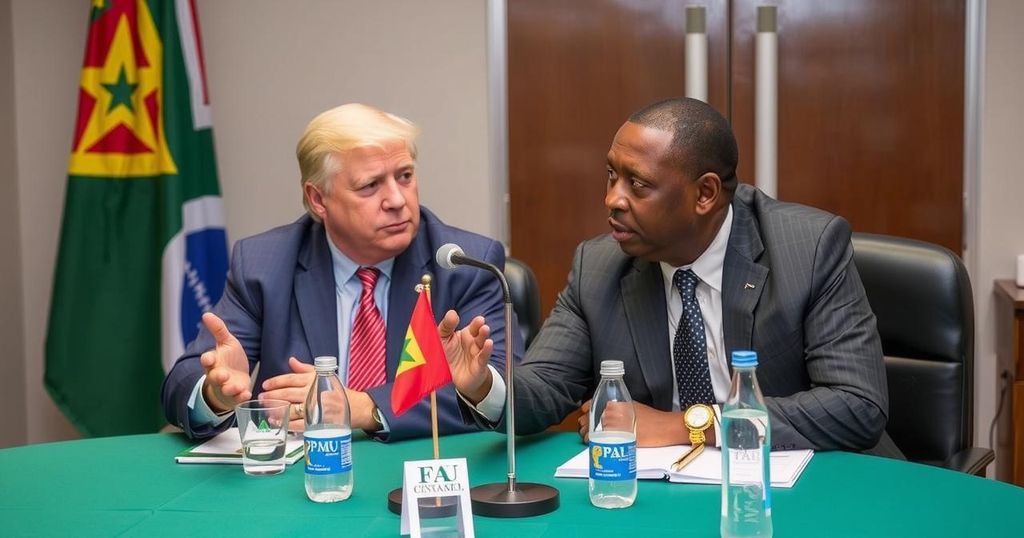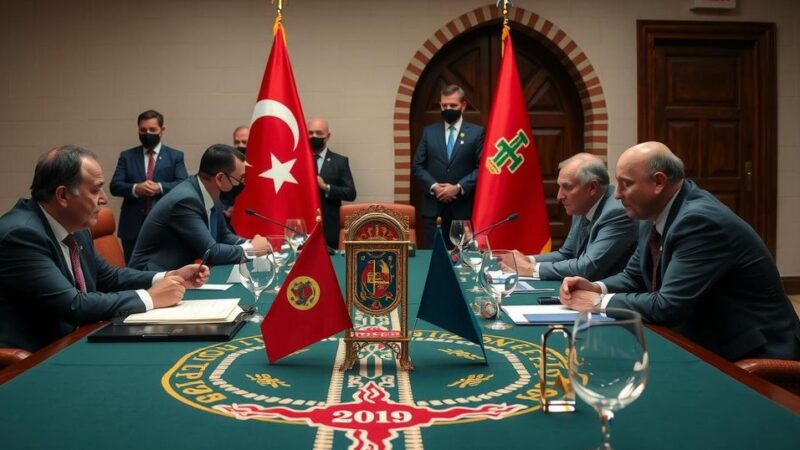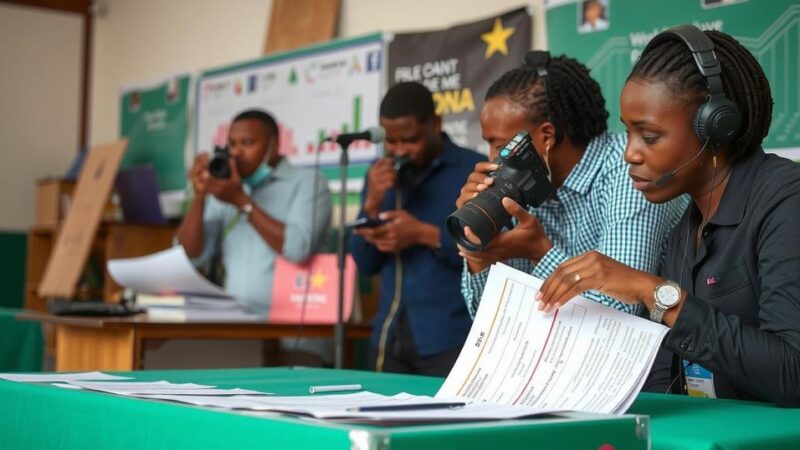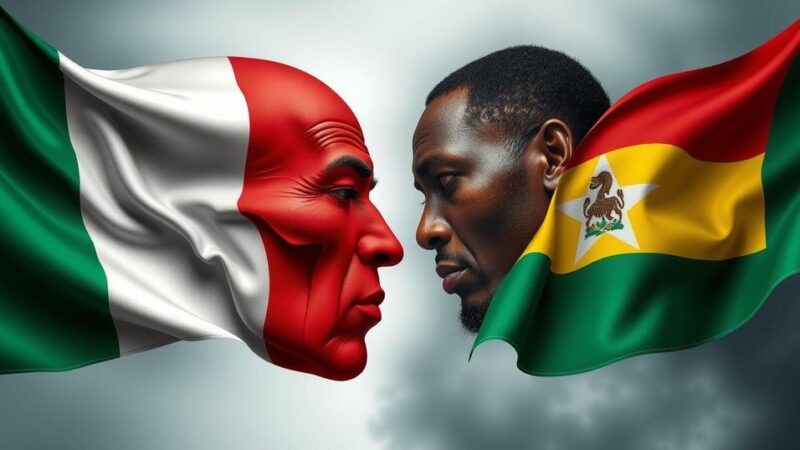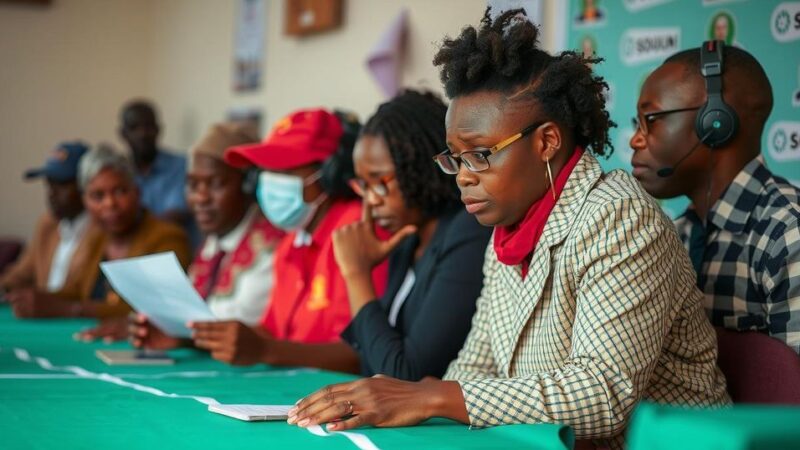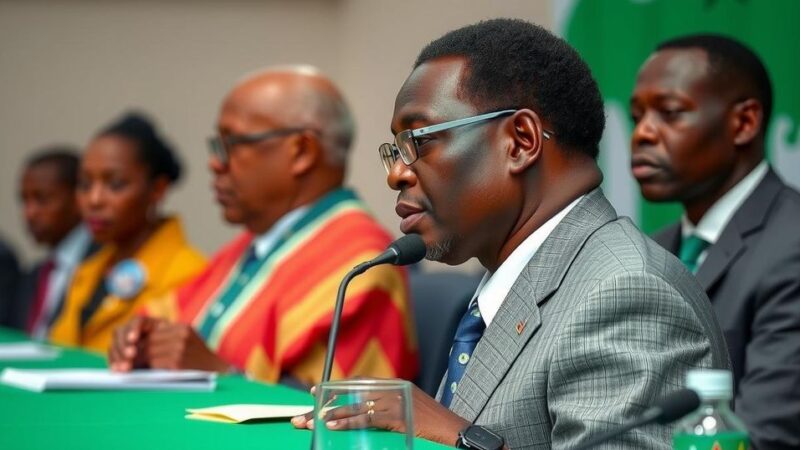South African and Mozambican ministers discussed the violent protests in Mozambique following the recent elections, focusing on the impact on bilateral relations and economic stability. They emphasized the importance of awaiting the Constitutional Council’s outcome and agreed on measures to mitigate disruptions at border crossings. The election results, which sparked unrest, have led to significant fatalities and require urgent dialogue for resolution.
On Wednesday, South African ministers engaged in discussions with a delegation from Mozambique concerning the aftermath of the recent elections, which sparked protests within Mozambique. During a press conference held in Malelane, approximately 50 kilometers from the Mozambican border, South African Foreign Minister Ronald Lamola acknowledged the necessity of awaiting the verdict of Mozambique’s Constitutional Council regarding the unfolding political circumstances. Lamola emphasized that the Council’s decision holds significance for multi-lateral platforms that South Africa is part of, including the Southern African Development Community (SADC) and the African Union.
Interior Minister Pascoal Ronda, who led the Mozambican team, indicated that President Filipe Nyusi is actively working to address the electoral conflicts. Ronda reported that Nyusi has advocated for dialogue among the contesting political factions, although Venancio Mondlane did not participate in such discussions. Furthermore, the ministers agreed on strategies to alleviate disruptions at border crossings between the two nations, particularly at the Lebombo and Ressano Garcia points, while prioritizing the protection of trade infrastructure and ensuring minimal disruption to regional integration efforts.
Mozambique has witnessed rampant protests following the announcement by its Electoral Commission, declaring Daniel Chapo from the ruling Mozambique Liberation Front (Frelimo) as the victor of the election held on October 9, where he secured 71% of the vote against Mondlane’s 20%. Mondlane has rejected these results, claiming widespread electoral fraud and prompting public demonstrations. Last month, in response to the rising violence, South Africa temporarily closed one of its key border crossings with Mozambique. The Constitutional Council is expected to deliver its ruling on December 23 regarding the electoral disputes. According to election monitoring group Plataforma Eleitoral Decide, at least 110 individuals have lost their lives since protests began on October 21.
The recent elections in Mozambique have led to significant political turmoil, marked by accusations of electoral fraud and subsequent protests. The situation intensified when the Electoral Commission announced the results favoring the ruling party’s candidate. This led to heightened tensions not only within Mozambique but also in neighboring South Africa, as both countries share economic and border ties. The involvement of South African officials demonstrates the regional implications of the political unrest in Mozambique, particularly concerning trade and cooperation across borders, and the necessity for dialogue and resolution of disputes in a timely manner.
The discussions between South African and Mozambican ministers underscore the regional implications of the violent post-election protests in Mozambique. The need for dialogue and resolution in light of the Constitutional Council’s impending decision highlights the ongoing political instability and its impact on both nations’ economies. As Mozambique seeks to restore order and address electoral grievances, collaboration between the two countries remains critical for ensuring stability and economic continuity in the region.
Original Source: www.aa.com.tr
